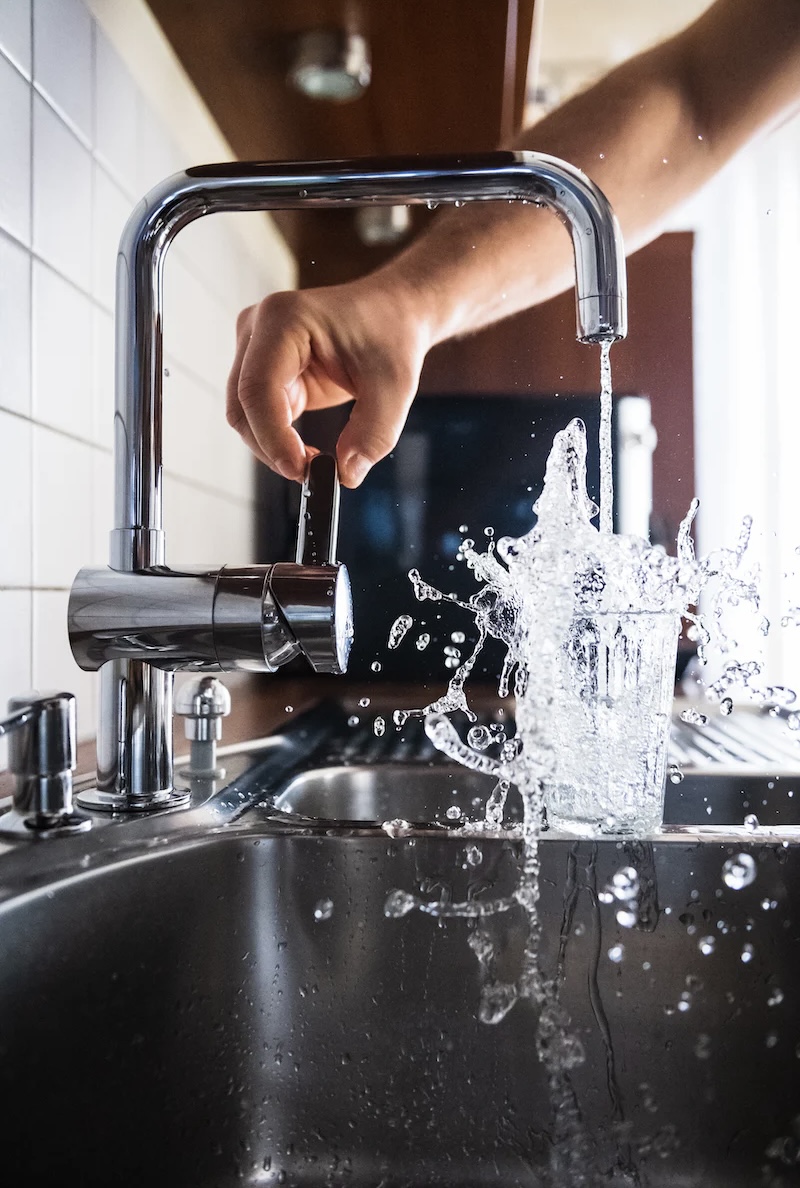
Hydration is a key component to overall health.
Access to water has been prioritized by people for thousands of years.
People have been building their communities near streams, lakefronts, and ocean bays to provide easy access to water for irrigation, drinking, and transportation.
The need for this essential resource is still just as important.
According to a recent Fortune article titled “It’s not 8 glasses a day anymore. Here’s how much water you should drink each day,” people cannot thrive without adequate hydration.

Drinking water is required for adequate hydration.
Why?
On average, the human body consists of more than 60 percent water.
The heart and brain alone have compositions of about two-thirds water.
Water makes up 31 percent of bones, 64 percent of skin, and 83 percent of lungs.
Consequently, the body systems foundational to life require water.
Yes, water is a big deal.
Hydration affects numerous body functions, including lubricating tissues and joints, transporting nutrients, regulating temperature, removing waste, and maintaining electrolyte balance.
People lose fluid through breathing, metabolizing food and drink, urinating, and sweating.
Dehydration can quickly set in when water is not consistently replaced.
Failing to drink water for several days can quickly lead to death.
Water consumption should be one of the first things a person assesses when making changes in nutrition.
Hydration can improve mood, cognitive function, and physical performance while simultaneously helping prevent kidney stones, constipation, and urinary tract infections.
It can also support better awareness of when you are hungry.
How much water should a person consume daily?
That is the key question, yes?
A good starting point would be to drink eight 8-ounce cups, according to conventional wisdom.
People may need to increase their consumption for a variety of factors, including pregnancy, breastfeeding, climate, and physical activity.
The recommendations from the National Academy of Science, Engineering, and Medicine are higher than the eight-by-eight rule.
What are these?
For men, the recommended daily intake is 125 ounces.
For women, the recommendation is 91 ounces.
Because people get a little bit of hydration from their food, it is generally okay for people to drink a little less water than this.
Although people are generally more likely to be dehydrated than over-hydrated, the condition is still possible.
Overhydration is called hyponatremia and causes water to overwhelm the kidneys.
How can you tell if you are getting enough water?
The best way to tell is simply to track your consumption.
Another good hydration indicator is urine color.
If the toilet water is golden or clear after relieving yourself, then you are doing well for hydration.
Recently, I have read that healthy urine should look like lemonade.
That seems to be an easy-to-visualize goal.
If your urine is amber or dark yell, you likely need to drink more fluids.
Bad sleep, dizziness, constipation, headaches, and migraines are common symptoms of poor hydration.
Toting, using, and refilling a water bottle can help you remember to drink enough water each day.
Reference: Fortune (May 6, 2023) “It’s not 8 glasses a day anymore. Here’s how much water you should drink each day”
REMEMBER: “The choice of a lawyer is an important decision and should not be based solely upon advertisements.”
This statement is required by rule of the Supreme Court of Missouri.
